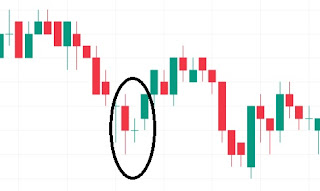The Big Problem with Traditional Trading
Here’s the harsh reality:
Markets love to make fools of us.
You think stocks are going up → they crash.
You bet on a drop → they rally.
Rinse. Repeat.
But sometimes, you don’t have to pick a direction at all.
Instead, you bet on chaos itself.
Enter the Double-Buy Strategy
Traders call it many names:
-
Long Straddle
-
Double-Buy
-
Buy Both Sides
But the idea is dead simple:
✅ Buy a call option
✅ Buy a put option
✅ On the same stock, with the same strike price and expiration
You’re betting on one thing only:
That the stock will move — a lot.
Why Bet on Volatility?
Markets aren’t stable creatures. They’re driven by:
-
Earnings surprises
-
Fed rate decisions
-
War headlines
-
Viral social media rumors
Volatility spikes out of nowhere. When it does, the double-buy strategy can turn into a money printer.
How It Works in Real Life
Let’s say Apple is trading at $150.
→ You buy:
-
One $150 Call
-
One $150 Put
Imagine Apple explodes to $170:
-
Your call is deep in the money.
-
Your put expires worthless.
-
Profit = call gains minus premiums.
Or Apple crashes to $130:
-
Your put skyrockets.
-
Your call dies.
-
Profit = put gains minus premiums.
As long as the move is big enough, one leg pays off enough to cover the loser — and then some.
The Magic Number: Breakeven Points
Here’s the catch:
Movement alone isn’t enough. The move has to be big enough to cover your costs.
Your total premium cost sets your breakeven zone.
Example:
-
Call costs $3
-
Put costs $3
-
Total = $6 premium
So for a profit, Apple must:
-
Rise above $156
-
Or fall below $144
Otherwise, you lose the premiums paid.
When the Double-Buy Strategy Shines
✅ Earnings reports (big gaps up or down)
✅ Fed meetings
✅ Merger rumors
✅ Legal rulings (e.g. big pharma, tech antitrust)
✅ Crypto markets (where volatility lives 24/7)
Basically, any scenario where you expect fireworks — but aren’t sure which direction the sparks will fly.
The Psychological Edge
Here’s my favorite part:
It frees your mind from having to predict direction.
No endless charts. No second-guessing trend lines.
Instead, you’re asking:
-
“Will something crazy happen?”
-
“Will this stock move more than the market expects?”
It’s surprisingly liberating.
The Brutal Truth: It’s Not Always Profitable
There’s a reason traders blow up accounts with straddles:
-
Premiums can be expensive before big news.
-
Small moves = slow death by time decay.
-
Implied volatility often collapses after events → shrinking option prices even if the stock moves.
My Unconventional Tip: Look for Low Implied Volatility
Everyone piles into straddles before earnings. Premiums explode.
Instead, look for:
✅ Stocks with a history of big moves
✅ Low current implied volatility
✅ No huge event priced in — but potential for surprises
That’s where the double-buy can sneak under the radar.
My “Only Sharing Once” Hack
Want my personal secret?
Buy slightly out-of-the-money strikes instead of ATM.
They’re cheaper → lower breakeven → better risk-reward.
For example, instead of $150 calls/puts on Apple, try:
-
$152.5 Call
-
$147.5 Put
Your cost drops, making smaller moves profitable.
One Thing to Remember
The double-buy strategy doesn’t guarantee profit. It guarantees a chance.
It’s not for every trade. It’s for moments when you smell volatility on the breeze.
If you’re tired of guessing direction — but believe chaos is coming — it might be your best-kept secret weapon.





No comments:
Post a Comment